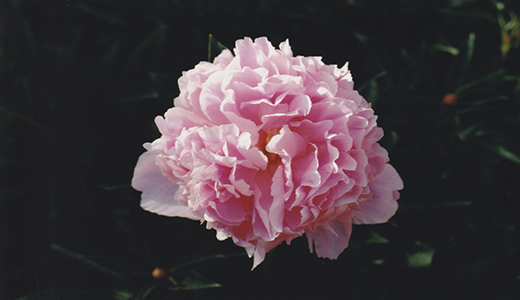K-State food scientist shares tips for buying, cleaning fruits and vegetables

Blakeslee touts the benefits of storing fresh produce
In most locales, the changing of seasons from spring to summer translates into an abundance of fruits and vegetables.
That’s good news for health, but if the wealth of fresh foods is allowed to spoil before they’re eaten, it could cause a pinch in the pocketbook.
“Fruits and vegetables are so important for health and they provide lots of good nutrition,” said Karen Blakeslee, a food scientist at Kansas State University. “But there are some general guidelines when it comes to purchasing those foods, and the first is to look it over – whether you’re purchasing at the grocery store or at a farmer’s market – to make sure you buy good quality produce.”
Listen to an interview by Jeff Wichman with Karen Blakeslee on the weekly radio podcast, Sound Living
Blakeslee said most fruits and vegetables should be cleaned before eating, as well as before they’re put into storage. Lettuce, leafy greens and fresh herbs, for example, may contain a small amount of dirt or even a stray bug crawling on the leaves.
“If you leave dirt and other visible contamination on the produce, that can reduce quality, so clean them up before you store them,” Blakeslee said. “If it needs to be rinsed before you put it into the refrigerator, do so. With some foods, it’s better to wait until you’re ready to use them before rinsing them with water.”
Rinsing, she said, should be “with plain water. There is no need to use produce washes or other cleaning products. Use a vegetable brush with water on produce that grows on or in the ground to remove visible dirt.”
“When you’re getting ready to prepare those foods, keep the fresh produce that is ready to eat away from raw meats,” Blakeslee said. “You don’t want raw meat juices to cross-contaminate those foods. Be mindful to wash your hands, use clean equipment and keep foods cold, if necessary.”
If food spoils, throw it out, or compost it, Blakeslee says. Clean storage bins, dishes or counters that may have been in contact with the spoiled product.
“There are some categories of foods that should be stored in the refrigerator, such as fresh berries, cherries, grapes, fresh herbs, lettuce and fresh vegetables, such as carrots,” Blakeslee said. “Once you start cutting produce, you have to store them in the refrigerator because they are going to deteriorate quickly.
Some foods – peaches and pears, for example – can be left on a counter to ripen. Then they should be used or refrigerated. Potatoes, onions, tomatoes and bananas can be left at room temperature until ready to use. Keep potatoes and onions separated because onions can cause potatoes to grow sprouts.
Blakeslee said K-State Research and Extension has a publication titled, Storing Fresh Produce, to help consumers care for many fruits and vegetables. The publication is available to purchase or view online from the K-State Research and Extension bookstore.
“There’s a lot of food waste that ends up in the landfill, and it creates environmental problems,” Blakeslee said. “A better choice is to re-purpose foods that may be spoiled, such as a compost pile or maybe you’ve got animals that can eat those foods.”
Food preparation scraps, such as produce peels, can also be composted or fed to animals.
Blakeslee said decreasing the amount of spoiled foods often begins at the time of purchase.
“Be a smart shopper,” she said. “Plan your meals and make a shopping list so you buy the right amount of food for the week. Plan around how much you can store to help avoid food waste.”
More information on food safety, including food preservation and canning, is available at local extension offices in Kansas.



